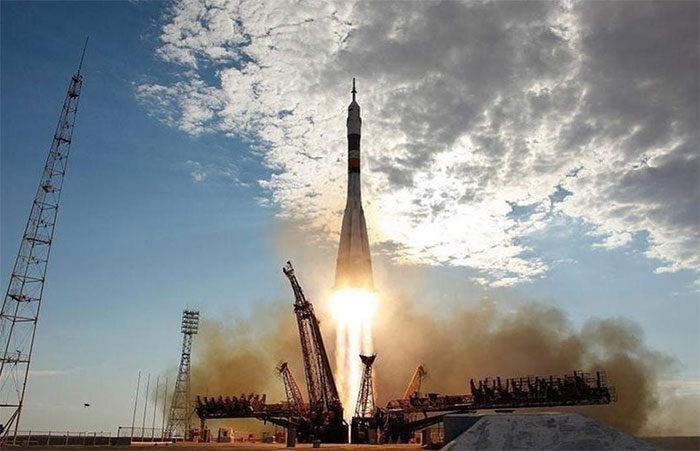Russia has become the first country in the world to establish a space system to monitor the Arctic region after the State Commission approved the operation of the Arktika-M No. 2 satellite, according to sources from the Russian state space corporation Roscosmos.

Soyuz rocket launches from Baikonur carrying an Arktika-M satellite. (Photo: RT).
In a groundbreaking technological achievement, Russia announced the development of a meteorological and hydrological space system that allows for continuous observation of the Arctic region.
“On April 27, 2024, the State Commission for flight testing of space complexes for economic, social, scientific, and commercial purposes reviewed the flight test results of the elliptical Arktika-M meteorological and hydrological space system with spacecraft Arktika-M No. 2. Based on the evaluation results, the Commission decided to complete the tests and put spacecraft Arktika-M No. 2 into operation,” Roscosmos stated in an announcement.
Previously, at the end of 2023, according to TASS news agency, Russia’s second meteorological satellite Arktika-M was successfully launched into its designated orbit from Baikonur Spaceport using a Soyuz-2.1b rocket.
The Soyuz-2.1b rocket carrying the Arktika-M No. 2 satellite was launched at 12:18 PM local time on December 16, 2023. About 9 minutes after launch, the Fregat upper stage successfully separated from the third stage of the rocket along with the satellite.
The space monitoring system for climate and meteorology of the Arktika satellites is designed to oversee the climate and environment in the Arctic region. This system will require at least two satellites to operate effectively.





















































